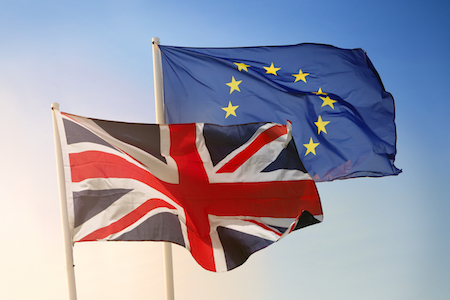
There has been high drama in Westminster in the last fortnight as negotiators have come closer to achieving agreement between Brussels and London on a Brexit withdrawal agreement. However, while there has been much turbulence over trade and customs proposals within the draft Withdrawal Agreement, there has been an entirely separate political discussion about the UK’s future security cooperation with the EU.
A joint statement published by the UK and EU on 14th November noted that the negotiations regarding law enforcement and judicial cooperation in criminal matters had been ‘particularly challenging’. The acknowledgement that further negotiations over trade in goods are needed was not at all surprising, but the lack of progress over the internal security negotiations will come as a surprise to many, particularly given the many common security challenges the UK and EU share.
In positive news, a draft joint Political Declaration unveiled this afternoon (22nd November) has underlined the UK and EU’s commitment to establish a ‘broad, comprehensive and balanced security partnership’. For instance, it has been confirmed that reciprocal arrangements will be made to continue the exchange of passenger name records (PNR), DNA, fingerprints and vehicle registrations, through the PNR and Prüm databases. The UK and EU will also sign an agreement enabling continued intelligence sharing. Importantly, both sides have made clear they remain fully committed to cooperation on countering terrorism, as well as on fighting money laundering and responding to natural or man-made disasters. The joint commitment to co-operate in cyberspace through the EU’s Cooperation Group will also be welcomed by many.
While these are welcome developments, the UK’s long-standing negotiating objectives have not been achieved in other areas. The documents suggest that the UK will no longer have access to the Schengen Information System II, an alerts system for wanted or missing persons and objects. It is also confirmed that the UK will no longer be part of the European Arrest Warrant, notwithstanding the political commitment to review issues relating to own nationals and political offences. It is also still unclear what the terms for the UK’s future cooperation with key EU law enforcement and judicial bodies, Europol and Eurojust, will be.
Although there is uncertainty around the future of UK-EU internal security cooperation, there has been an encouraging development in one area of the economic negotiations that will very directly affect the security industry. Sitting at the very start of the political declaration is a commitment to facilitate data flows and exchanges. Therefore, the EU will commence assessments of the UK’s data protection standards immediately after the UK’s withdrawal, so that decisions can be made by the end of 2020 to continue cross-border data flows if the UK’s standards meet the EU adequacy framework. The UK will also take similar steps to ensure the transfer of personal data to the EU.





